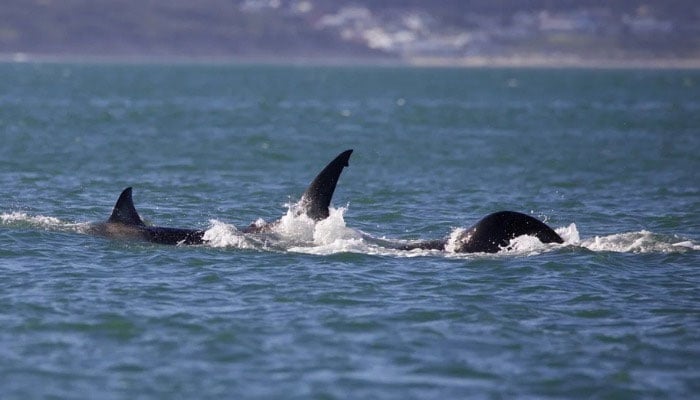Lone Orca kills great white shark in less than 2 minutes
This is believed to be the first time a lone orca has hunted world's largest predatory fish
A recent hunt by an orca whale has astonished scientists, as the killer whale attacked and swallowed a great white shark before swimming away with the victim's liver in its jaws in less than two minutes, The Guardian reported.
According to experts, the event that took place off the coast of Mossel Bay in South Africa provides new insights into orcas' predatory behaviour. While orcas have been seen hunting sharks, dolphins, and even whales alone, this is believed to be the first time a lone orca has hunted the world's largest predatory fish.
"Killer whales, or orcas, usually team up when they hunt, although they can hunt solitarily," said Dr Alison Towner of Rhodes University, who led research into the discovery.
He added, "The unusual aspect was witnessing Starboard, the killer whale, hunting a white shark alone and in a remarkably rapid timeframe."
The events took place on June 18, 2023, and the details have been published in the African Journal of Marine Science.
According to the report, a boat carrying tourists and researchers left at 2pm after an orca nicknamed "Starboard" and the killer whale "Port" were sighted. As the vessel crossed the water to follow the pair, the researchers described how the smell of shark liver and the sight of diving kelp gulls indicated a recent kill.
The subsequent attack was rapid as a juvenile white shark appeared at the water's surface at 3:02pm. Starboard appeared directly after it.
The whale "gripped the left pectoral fin of the shark and thrust forward with the shark several times before eventually eviscerating it," the report says. Minutes later, Starboard was seen with "a bloody piece of peach-coloured liver in its mouth."
-
Scientists discover rare form of 'magnets' that might surprise you
-
Humans may have 33 senses, not 5: New study challenges long-held science
-
Northern Lights: Calm conditions persist amid low space weather activity
-
SpaceX pivots from Mars plans to prioritize 2027 Moon landing
-
Dutch seismologist hints at 'surprise’ quake in coming days
-
SpaceX cleared for NASA Crew-12 launch after Falcon 9 review
-
Is dark matter real? New theory proposes it could be gravity behaving strangely
-
Shanghai Fusion ‘Artificial Sun’ achieves groundbreaking results with plasma control record












